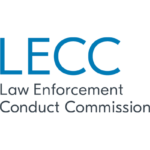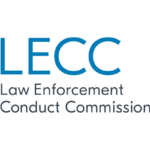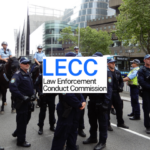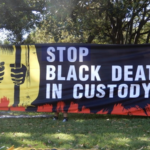The NSW Law Enforcement Conduct Commission: A Toothless Police Watchdog
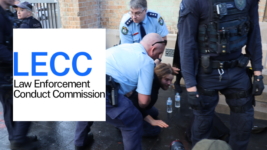
Despite long-term calls to reform a system that continues to position the NSW Police Force as the chief investigator of NSW police critical incidents, which are those that involve officers causing death or serious harm, the state law enforcement body remains the primary inquisitor.
This is despite the establishment of the Law Enforcement Conduct Commission in mid-2017, which consolidated the then various avenues of independent police oversight into the one watchdog that, these days, only oversights police as they investigate their own in regard to critical incidents.
In May, the LECC released a review of its first five years of monitoring NSW police critical incidents. And of the 157 that occurred over the 60 months to June 2022, 92, or 59 percent, of them involved a death, while 68, or 43 percent, involved a person having a mental health crisis.
And another primary function of the state’s sole police watchdog is that its Integrity Division is charged with detecting, investigating and exposing “serious misconduct and serious maladministration in the NSW Police Force and the NSW Crime Commission”.
Yet, the LECC has been underfunded since inception, and this was still the case last year, which has meant it’s never been able to perform its full mandate, so the independent statutory body must select which cases to pursue and which to leave to state law enforcement to investigate itself.
A brief history of the LECC
Then NSW police minister Troy Grant commissioned former NSW shadow police minister Andrew Tink in 2015 to produce a report regarding a potential “single civilian oversight model for police in NSW”, as recent research had highlighted the overlapping nature of police oversight in the state.
The Tink report found that the process of police oversight was convoluted, as it was spread out over the Police Integrity Commission, the police division of the Office of the NSW Ombudsman and the inspector of the NSW Crime Commission. And Tink recommended a consolidation of their functions.
So, the Baird government passed the Law Enforcement Conduct Commission Act 2016 (NSW), which sought to streamline police oversight in this state with the creation of the LECC, which then commenced operations on 1 July 2017.
The LECC is headed by a chief commissioner and a commissioner appointed by the NSW governor.
Currently, NSW Supreme Court Justice Peter Johnson SC is LECC chief commissioner, while former deputy president of the NSW Mental Health Review Tribunal Anina Johnson is LECC commissioner.
Along with investigating police misconduct, the LECC also handles complaints about NSW police lodged with it, and if the statutory body identifies a pattern of complaints or recurring misconduct issues, it can then choose to launch its own inquiry into NSW police in relation to that matter.
The sole NSW police watchdog also monitors NSW police investigations of serious misconduct allegations against its officers, along with its oversighting of critical incident inquiries.
Investigating its own
“Due to the serious nature of critical incidents, and the need to determine how and why a death or serious injury has occurred during a police operation, it is important that highly skilled and appropriately resourced personnel undertake… investigations,” Grant told parliament in 2016.
The then police minister’s second reading speech on the LECC legislation further added that it just so happens that NSW police “has some of the best investigators in the world, particularly the elite Homicide Squad,” and therefore, it would be appropriate for them to investigate such incidents.
In making these pointed remarks regarding police retaining the power to investigate critical incidents, Grant would have been responding in part to long-term criticisms of a system that allows police to investigate police over such incidents, as it’s considered to result in biased outcomes.
And another serious issue with the laws, the NSW Council for Civil Liberties rose in 2017 is that “the oversight capacity is seriously weakened” by a restriction that only allows the LECC to observe critical incident interviews with the consent of the interviewee and the senior police investigator.
Over the 12 months to June 2023, the LECC oversight division received 2,104 police misconduct investigations to oversee, while 2,129 such inquiries were finalised over that period. And in terms of critical incidents, 45 were received by the LECC, and 20 such incident inquiries were finalised.
Complaints function
Another key role of the LECC is to assess complaints about the NSW Police Force. And over the financial year 2022-23, the watchdog considered 4,703 complaints, which were either directly lodged with the commission or submitted to NSW police itself.
In terms of complaints lodged directly with NSW police, the LECC considers whether it should take over the investigation of a complaint or if it should monitor the police investigating it. And if it does not agree with a police decision not to inquire into a complaint, it can order the force to do so.
Section 99(3) of the LECC Act requires that if the NSW police commissioner determines not to investigate a police misconduct issue and the commission doesn’t agree with them, the top cop is notified of this, and the force must then inquire into the matter.
Over the last financial year, the LECC integrity division required the police commissioner to open up investigations into 24 police misconduct matters originally overlooked for inquiry, which lead to seven matters involving at least one sustained finding, with fifteen sustained findings overall.
Once were watchdogs
Former NSW Supreme Court Justice Michael Adams was appointed the first LECC chief commissioner in mid-2017. And at that time, there were two other key commissioners: the LECC integrity commissioner and the LECC oversight commissioner.
In October 2018, Adams and his co-commissioners, launched the LECC inquiry into NSW police use of strip searches, as a widespread issue had arisen around the increasing use of strip searches by NSW police, with multiple allegations that they were being applied unlawfully.
A number of interim reports relating to LECC hearings into how strip searches were being misapplied in the community, especially at music festivals, uncovered serious misconduct, and the findings of the final NSW police strip search report released in December 2020 were damning.
During the ongoing media furore around the strip search allegations, however, it was announced in late 2019, that Adams contract as LECC chief commissioner would not be renewed, when it expired in January 2020, which many considered was due to the robust nature of the strip search inquiry.
Indeed, five days after Adams departure from the role, the LECC then announced it was ending its strip search inquiry midway, with the final report based upon the investigation up until that point.
And over the next financial year, laws were passed that facilitated the consolidation of the roles of integrity division commissioner and oversight division commissioner into the one position of LECC commissioner. And it was explained away as a cost saving measure.
NSW Greens MLC Sue Higginson told parliament in May last year that the LECC “was significantly under resourced” and this was leading to “the vast majority of complaints and allegations of police misconduct” being handled by NSW police itself.
Yet, Adams had raised this same funding issue to a parliamentary committee in March 2018, less than a year into LECC operations. And he outlined that because of budgetary restrictions it was unable to inquire into many misconduct incidents, which were then being handed back to police.
Higginson further called on parliament to fully resource the LECC so that the issue of police investigating police was resolved, but as Adams hinted in 2018, because of the rising budgetary issues occurring at that point, he considered it would “continue to escalate in future years”.


